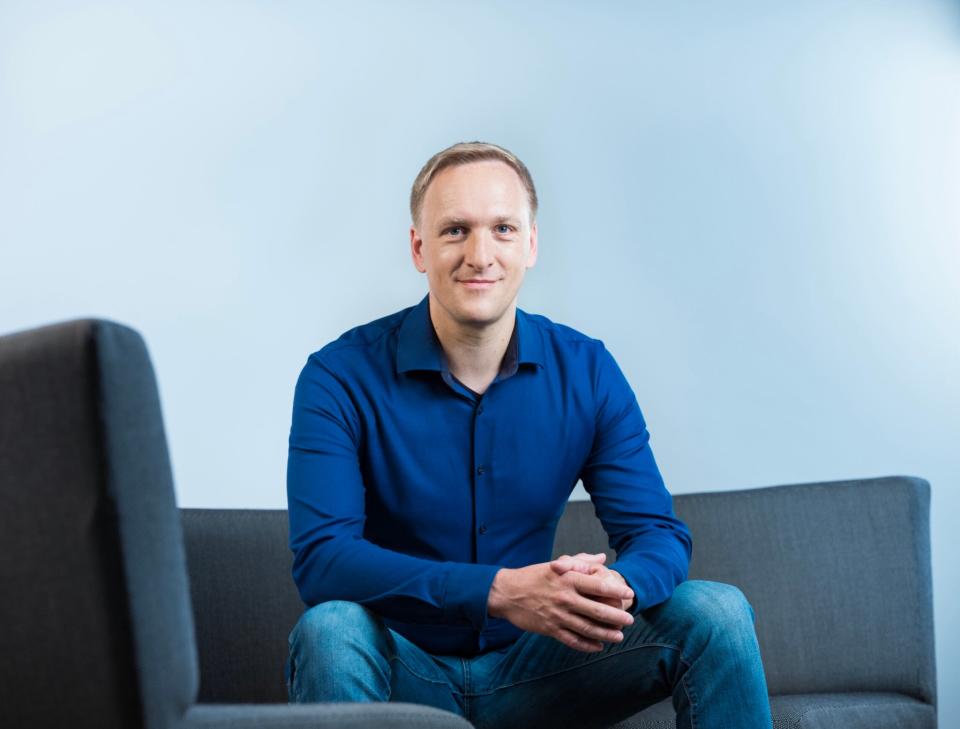Why SAP’s CTO made scale a strategy for generative AI

There's an unavoidable question facing every tech leader as they embark on an AI adventure: take a limited approach or go big?
For Juergen Mueller, the chief technology officer at SAP, the answer lies in the power of scale and in the areas where generative AI technology can drive the largest value for the most users possible.
“There's an almost unlimited amount of generic use cases that we can and will bring to our customers,” says Mueller. But with more than 300 million enterprise users leaning on SAP's cloud solutions, the German business software firm looks for ways to expand AI horizontally to all types of customers.
One big area of focus has been SAP’s generative AI copilot, Joule, which launched in September and by the end of this year, will be fully integrated with all major SAP cloud applications ranging from HR, finance, supply chain, and procurement. Joule is already integrated with SAP's HR tool SuccessFactors, helping clients that craft 2 million job postings each year create stronger first drafts that can be utilized by hiring managers and recruiters.
SAP is investing more than $1 billion in AI over the next two years, focusing on the products it develops for customers—including automating workplace tasks, data and analytics, and code development tools—while also embedding AI internally at SAP. In the first half of this year, SAP introduced more than 25 new AI capabilities to boost productivity and HR-related tasks.
The company also invested in three generative AI companies last year: Aleph Alpha, Anthropic, and Cohere. And SAP has reorganized itself as the focus on AI intensifies, with a restructuring affecting around 8,000 jobs that will either see voluntary exists or re-skill internally.
SAP has taken an agnostic approach to partnerships, working with vendors ranging from OpenAI to Anthropic and allowing developers using SAP products like SuccessFactors to submit a prompt to those large language models and compare the generated outcomes. By experimenting with a few models, typically at least two to three at a time, Mueller says developers can find the best-suited model for each task.
Mueller expects to see more specialized large language models be developed for more targeted business use cases. “I don’t think there will be hundreds of large language models that we will use in a business context,” says Mueller.
SAP is developing its own models, when it doesn’t get what it needs from what’s available on the market. Mueller says the firm is particularly focused on tabular data, like predictive analysis for financial data that’s organized in rows and columns.
In April, SAP extended its contract with Mueller for another three years through the end of 2027, a common arrangement for a German-based company where a supervisory board is given authority to advise executives like Mueller.
After the first two years of the contract, Mueller and the supervisory board meet to discuss what the future path for his work at SAP would look like if he were to stay on. “There’s sufficient planning,” says Mueller. “I like it because it starts some good thinking and reflection.”
Mueller, who was included on the Fortune 40 Under 40 list in 2020, joined SAP in 2013 and held various leadership roles including chief innovation officer before ascending to the CTO job in 2019. He oversees the SAP Business Technology Platform, which combines application development and automation, data management, analytics, and generative AI capabilities into one unified environment for SAP’s applications.
Mueller believes workplaces need to enable their workforces to share ideas of how generative AI can automate tasks, rather than management forcing the technology onto an organization. To encourage greater experimentation of generative AI, SAP created an AI playground that allowed more than 60,000 employees to try out more than 2 million AI prompts last year.
“The best ideas, oftentimes, come from the people who are doing the work,” says Mueller.
John Kell
Send thoughts or suggestions to CIO Intelligence here.
This story was originally featured on Fortune.com

 Yahoo Finance
Yahoo Finance 